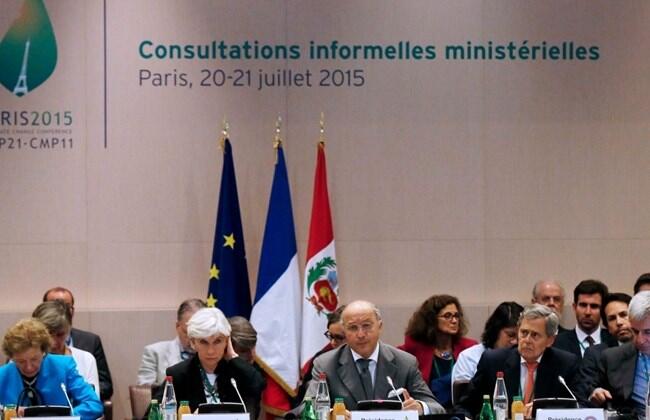Rank-and-file negotiators “are being stymied by political questions they can’t always resolve at their level,” Fabius said. “We ministers have to start looking now for compromise on the big political issues,” Fabius told ministers or senior representatives from 45 countries. Paris will host a 195-nation U.N. climate conference from Nov. 30 to Dec. 11 to hammer out a deal aimed at holding dangerous global warming in check. The current draft of the accord is little more than an unwieldy, 86-page laundry list of sticking points and options. Underscoring the urgency of the task, the U.S. National Oceanic and Atmospheric Administration reported Monday that the first half of 2015 was the hottest on record for the planet. Fabius urged countries to narrow the gap on two issues in particular, starting with the level of ambition – meaning the scale of carbon emissions curbs. The U.N. has embraced a goal of limiting average global warming to two degrees Celsius over pre-industrial levels. Scientists say disastrous climate impacts can be avoided at this threshold, but warn the world is on course for double the target, or more. Another issue that has bedeviled the U.N. climate talks almost since they started over 20 years ago is how to apportion responsibility for curbing carbon emissions. Developing countries want rich nations, which have polluted for longer, to bear more of the burden. But the United States and others point the finger at high-population developing economies like China and India, which are burning through vast carbon stocks to power their way out of poverty. The two Asian giants now account for more emissions than the United States and European Union together. Fabius said the ministers and senior officials would meet in Parisagain in early September to tackle another Gordian knot of the climate talks: finance. The fraught 2009 climate summit in Copenhagen decided developing countries would receive $100 billion annually from 2020 to help reduce CO2 emissions and adapt to unavoidable climate impacts. But a host of thorny questions remain on where the money will come from, how it will be distributed, and how spending will be verified. Agence France Presse











